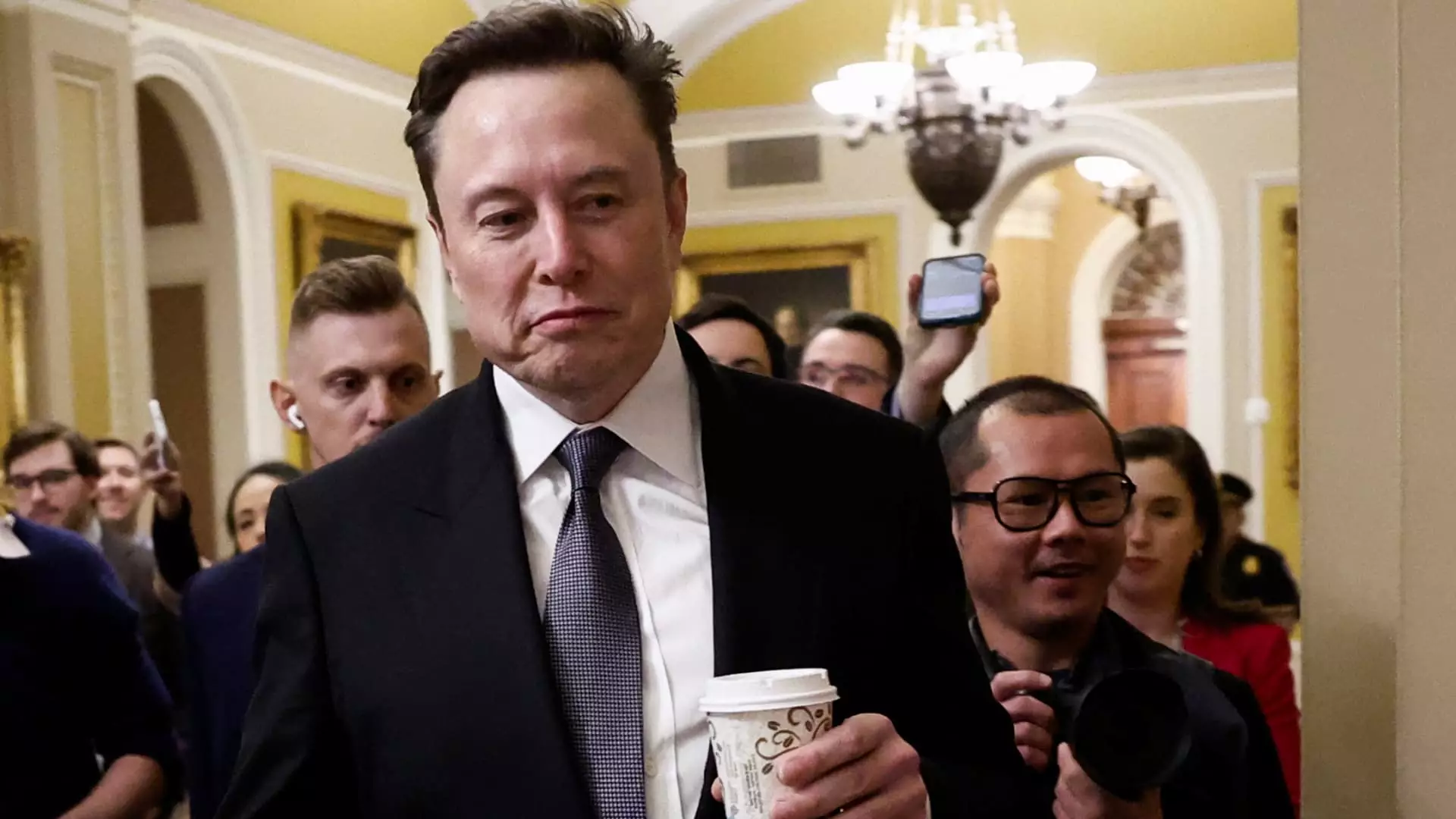The intersection of politics and business has never been more pronounced, especially with influential figures like Elon Musk at the center. Recent events have highlighted a concerning trend within Congress, particularly among House Democrats Jim McGovern and Rosa DeLauro, regarding the influence of Musk on American legislation. Their assertions point to a worrying shift in priorities that could impact the country’s technological and economic future, particularly in terms of U.S. investments in China.
The initial bipartisan government funding bill was intended to impose regulations on American investments in China, particularly concerning cutting-edge technologies such as artificial intelligence and quantum computing. This legislation had the potential to safeguard American jobs and technology from foreign appropriation but was ultimately sidelined. As congressional leaders scrambled to avoid a government shutdown, a temporary stopgap measure was enacted, allowing time for ongoing discussions but leaving critical issues unaddressed.
Democrats have voiced frustration over the capitulation to Musk’s perceived pressures, suggesting that political maneuvering has become more about individual corporate interests rather than national security concerns. McGovern’s comments on social media reveal a sentiment that the failure to pass the original bill signifies a loss of potential progress for American workers and technology sectors. His claim that Musk’s influence was pivotal in this decision raises urgent questions about who truly shapes policy in contemporary America.
Elon Musk’s business entanglements in China complicate the narrative. Tesla’s operations in China—particularly its factory without a joint venture—showcase a strategy tailored to capitalize on the lucrative Chinese market. However, this approach also paints Musk as a figure prioritizing business over national interests. The establishment of a battery plant adjacent to Tesla’s Shanghai factory further illustrates his commitment to integrating deep within Chinese supply chains at the potential cost of compromising American national security.
McGovern has amplified concerns that Musk’s ambitions in China could undermine U.S. security interests. Attempting to establish an AI data center in China raises alarming implications about data handling and security protocols. The idea that Musk might exert undue influence over U.S. policy for personal and corporate gain positions him as a controversial emblem of how corporate interests can asymmetrically impact national dialogue and security.
The dynamics between Musk and political figures like Trump have also come under scrutiny. DeLauro’s symbolic reference to Musk as “President” highlights the blurred lines between corporate power and political influence. The intertwining narratives of Musk supporting Trump’s ambitions, particularly in funding and advisory roles, highlight how a significant figure in the tech industry can shape the political landscape. This raises the question: is American democracy succumbing to the weight of corporate power?
Musk’s public retorts, such as labeling DeLauro an “awful creature,” are emblematic of a broader strategy where magnates engage in a “might makes right” rhetoric that can overshadow critical discussions on regulatory measures and national security. The willingness of Congress to defer to Musk’s interests complicates the legislative landscape, suggesting a trend where political agency is increasingly granted to individual business leaders.
The ongoing saga serves as a stark reminder of the delicate balance between technological innovation and governance. The implications of legislative inaction on regulating foreign investments, especially regarding China, could reverberate throughout the American technological landscape. A failure to uphold rigorous standards not only jeopardizes the domestic tech industry but also risks ceding ground in global technology competition.
As the tension between political influence and corporate power intensifies, it becomes imperative for Congress to reassess its approach. The foundation of democracy rests on accountability and transparency, both of which seem threatened by the growing entanglement of political and corporate interests. Ultimately, as figures like Musk become increasingly influential in shaping policies, society must grapple with the need for stronger regulations that ensure the protection of American jobs and technology against external threats. The future of innovation in America may depend on how well we navigate this complex intersection of interests in the coming years.


Leave a Reply
You must be logged in to post a comment.